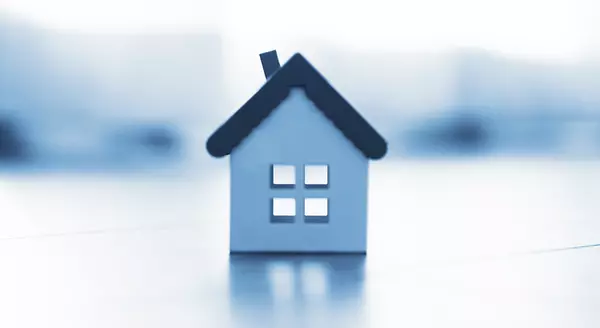

How VA Loans Can Help You Buy a Home
For over 80 years, Veterans Affairs (VA) home loans have helped millions of veterans buy their own homes. If you or someone you know has served in the military, it's important to learn about this program and its benefits.Here are some key things to know about VA loans before buying a home.Top Benefits of VA Home LoansVA home loans make it easier for veterans to buy a home, and they're a great perk for those who qualify. According to the Department of Veteran Affairs, some benefits include:Options for No Down Payment: Qualified borrowers can often purchase a home with no down payment. That’s a huge weight lifted when you’re trying to save for a home. The Associated Press says:“. . . about 90% of VA loans are used to purchase a home with no money down.”Don’t Require Private Mortgage Insurance (PMI): Many other loans with down payments under 20% require PMI. VA loans do not, which means veterans can save on their monthly housing costs.Limited Closing Costs: There are limits on the types of closing costs you pay when you qualify for a VA home loan. So, more money stays in your pocket when it’s time to seal the deal. An article from Veterans United sums up how remarkable this loan can be:“For the vast majority of military borrowers, VA loans represent the most powerful lending program on the market. These flexible, $0-down payment mortgages have helped more than 24 million service members become homeowners since 1944.”Bottom LineOwning a home is the American Dream. Veterans give a lot to protect our country, and one way to honor them is by making sure they know about VA home loans.
Read More
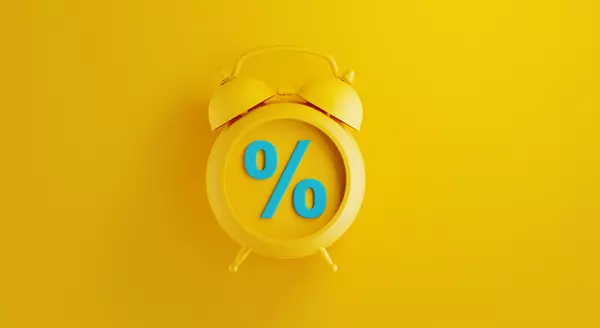
The Best Way To Keep Track of Mortgage Rate Trends
If you’re thinking about buying a home, chances are you’ve got mortgage rates on your mind. You’ve heard about how they impact how much you can afford in your monthly mortgage payment, and you want to make sure you’re factoring that in as you plan your move.The problem is, with all the headlines in the news about rates lately, it can be a bit overwhelming to sort through. Here’s a quick rundown of what you really need to know.The Latest on Mortgage RatesRates have been volatile – that means they’re bouncing around a bit. And, you may be wondering, why? The answer is complicated because rates are affected by so many factors.Things like what’s happening in the broader economy and the job market, the current inflation rate, decisions made by the Federal Reserve, and a whole lot more have an impact. Lately, all of those factors have come into play, and it’s caused the volatility we’ve seen. As Odeta Kushi, Deputy Chief Economist at First American, explains:“Ongoing inflation deceleration, a slowing economy and even geopolitical uncertainty can contribute to lower mortgage rates. On the other hand, data that signals upside risk to inflation may result in higher rates.”Professionals Can Help Make Sense of it AllWhile you could drill down into each of those things to really understand how they impact mortgage rates, that would be a lot of work. And when you’re already busy planning a move, taking on that much reading and research may feel a little overwhelming. Instead of spending your time on that, lean on the pros.They coach people through market conditions all the time. They’ll focus on giving you a quick summary of any broader trends up or down, what experts say lies ahead, and how all of that impacts you.Take this chart as an example. It gives you an idea of how mortgage rates impact your monthly payment when you buy a home. Imagine being able to make a payment between $2,500 and $2,600 work for your budget (principal and interest only). The green part in the chart shows payments in that range or lower based on varying mortgage rates (see chart below):As you can see, even a small shift in rates can impact the loan amount you can afford if you want to stay within that target budget.It’s tools and visuals like these that take everything that’s happening and show what it actually means for you. And only a pro has the knowledge and expertise needed to guide you through them.You don’t need to be an expert on real estate or mortgage rates, you just need to have someone who is, by your side.Bottom LineHave questions about what’s going on in the housing market? Connect with a real estate professional to take what’s happening right now and figure out what it really means for you.
Read More

Should I Wait for Mortgage Rates To Come Down Before I Move?
If you’ve got a move on your mind, you may be wondering whether you should wait to sell until mortgage rates come down before you spring into action. Here’s some information that could help answer that question for you.In the housing market, there’s a longstanding relationship between mortgage rates and buyer demand. Typically, the higher rates are, you’ll see lower buyer demand. That’s because some people who want to move will be hesitant to take on a higher mortgage rate for their next home. So, they decide to wait it out and put their plans on hold.But when rates start to come down, things change. It goes from limited or weak demand to good or strong demand. That’s because a big portion of the buyers who sat on the sidelines when rates were higher are going to jump back in and make their moves happen. The graph below helps give you a visual of how this relationship works and where we are today: As Lisa Sturtevant, Chief Economist for Bright MLS, explains:“The higher rates we’re seeing now [are likely] going to lead more prospective buyers to sit out the market and wait for rates to come down.”Why You Might Not Want To WaitIf you’re asking yourself: what does this mean for my move? Here’s the golden nugget. According to experts, mortgage rates are still projected to come down this year, just a bit later than they originally thought. When rates come down, more people are going to get back into the market. And that means you’ll have a lot more competition from other buyers when you go to purchase your next home. That may make your move more stressful if you wait because greater demand could lead to an increase in multiple offer scenarios and prices rising faster.But if you’re ready and able to sell now, it may be worth it to get ahead of that. You have the chance to move before the competition increases.Bottom LineIf you’re thinking about whether you should wait for rates to come down before you move, don’t forget to factor in buyer demand. Once rates decline, competition will go up even more. If you want to get ahead of that and sell now, talk to a real estate agent.
Read More

Why Mortgage Rates Could Continue To Decline
When you read about the housing market, you’ll probably come across some information about inflation or recent decisions made by the Federal Reserve (the Fed). But how do those two things impact you and your homebuying plans? Here's what you need to know.The Federal Funds Rate Hikes Have StalledOne of the Fed’s primary goals is to lower inflation. In order to do that, they started raising the Federal Funds Rate to slow down the economy. Even though this doesn’t directly dictate what happens with mortgage rates, it does have an impact.Recently inflation has started to cool, a signal those increases worked and are bringing inflation back down. As a result, the Fed’s hikes have gotten smaller and less frequent. In fact, there haven’t been any increases since July (see graph below):And not only has the Fed decided not to raise the Federal Funds Rate the last three times the committee met, they’ve signaled there may actually be rate cuts coming in 2024. According to the New York Times (NYT):“Federal Reserve officials left interest rates unchanged in their final policy decision of 2023 and forecast that they will cut borrowing costs three times in the coming year, a sign that the central bank is shifting toward the next phase in its fight against rapid inflation.”This indicates the Fed thinks the economy and inflation are improving. Why does that matter to you and your plans to buy a home? It could end up leading to lower mortgage rates and improved affordability.Mortgage Rates Are Coming DownMortgage rates are influenced by a wide variety of factors, and inflation and the Fed’s actions (or as has been the case recently, inaction) play a big role. Now that the Fed has paused the increases, it looks more likely mortgage rates will continue their downward trend (see graph below): Although mortgage rates may remain volatile, their recent trend combined with expert forecasts indicate they could continue to go down in 2024. That would improve affordability for buyers and make it easier for sellers to move since they won’t feel as locked-in to their current, low mortgage rate.Bottom LineThe Fed’s decisions have an indirect impact on mortgage rates. By not raising the Federal Funds Rate, mortgage rates are likely to continue declining. Rely on a trustworthy real estate expert to give you expert advice about changes in the housing market and how they affect you.
Read More

Your Home Equity Can Offset Affordability Challenges
Are you thinking about selling your house? If so, today’s mortgage rates may be making you wonder if that’s the right decision. Some homeowners are reluctant to sell and take on a higher mortgage rate on their next home. If you’re worried about this too, know that even though rates are high right now, so is home equity. Here’s what you need to know.Bankrate explains exactly what equity is and how it grows:“Home equity is the portion of your home that you’ve paid off and own outright. It’s the difference between what the home is worth and how much is still owed on your mortgage. As your home’s value increases over the long term and you pay down the principal on the mortgage, your equity stake grows.”In other words, equity is how much your home is worth now, minus what you still owe on your home loan.How Much Equity Do Homeowners Have Now?Recently, your equity has been growing faster than you might think. To help contextualize just how much the average homeowner has, CoreLogic says:“. . . the average U.S. homeowner now has about $290,000 in equity.”That’s because, over the past few years, home prices went up significantly – and those rising prices helped your equity to accumulate faster than usual. While the market has started to normalize, there are still more people wanting to buy homes than there are homes available for sale. This high demand is causing home prices to go up again.According to the Federal Housing Finance Agency (FHFA), the Census, and ATTOM, a property data provider, nearly two-thirds (68.7%) of homeowners have either fully paid off their mortgages or have at least 50% equity (see chart below):That means nearly 70% of homeowners have a tremendous amount of equity right now. How Equity Helps with Your Affordability ConcernsWith today’s affordability challenges, your equity can make a big difference when you decide to move. After you sell your house, you can use the equity you've built up in your home to help you buy your next one. Here’s how:Be an all-cash buyer: If you've been living in your current home for a long time, you might have enough equity to buy a new house without having to take out a loan. If that's the case, you won't need to borrow any money or worry about mortgage rates. The National Association of Realtors (NAR) states:“These all-cash home buyers are happily avoiding the higher mortgage interest rates . . .”Make a larger down payment: Your equity could be used toward your next down payment. It might even be enough to let you put a larger amount down, so you won't have to borrow as much money so today’s rates become less of a sticking point. Experian explains:“Increasing your down payment lowers your principal loan amount and, consequently, your loan-to-value ratio, which could lead to a lower interest rate offer from your lender.”Bottom LineIf you're thinking about moving, the equity you've built up can make a big difference, especially today. To find out how much equity you've got in your current house and how you can use it for your next home, get in touch with a trusted real agent.
Read More
![The Key Advantage of Investing in a Home [INFOGRAPHIC],KCM Crew](https://cdn.chime.me/image/fs/sitebuild/2019929/2/w600_original_dfefa6fe-eceb-4ecf-aadc-e48589da0a9a-jpeg.webp)
The Key Advantage of Investing in a Home [INFOGRAPHIC]
Read More

How Changing Mortgage Rates Can Affect You
The 30-year fixed mortgage rate has been bouncing between 6% and 7% this year. If you’ve been on the fence about whether to buy a home or not, it’s helpful to know exactly how a 1%, or even a 0.5%, mortgage rate shift affects your purchasing power. The chart below helps show the general relationship between mortgage rates and a typical monthly mortgage payment:Even a 0.5% change can have a big impact on your monthly payment. And since rates have been moving between 6% and 7% for a while now, you can see how it impacts your purchasing power as rates go down.What This Means for YouYou may be tempted to put your homebuying plans on hold in hopes that rates will fall. But that can be risky. No one knows for sure where rates will go from here, and trying to time them for your benefit is tough. Lisa Sturtevant, Housing Economist at Bright MLS, explains:“It is typically a fool’s errand for a homebuyer to try to time rates in this market . . . But volatility in mortgage rates right now can have a real impact on buyers’ monthly payments.”That’s why it’s critical to lean on your expert real estate advisors to explore your mortgage options, understand what impacts mortgage rates, and plan your homebuying budget around today’s volatility. They’ll also be able to offer advice tailored to your specific situation and goals, so you have what you need to make an informed decision.
Read More
Categories
- All Blogs (326)
- Aging Parents (2)
- Buyers Tips (36)
- Condos (2)
- Downsizing (7)
- Equity (5)
- Financing/Mortgage (7)
- First Time Home Buyers (7)
- Fun Items (4)
- Home Remodeling (2)
- Investing (4)
- Local Housing Market (32)
- Making Offers (4)
- Moving (2)
- Multigenerational (2)
- New Construction (1)
- North Port Housing Report (3)
- Probate / Divorce / Foreclosure (1)
- Rent (2)
- Sellers (35)
- Thing to Do in the Area (3)
- Venice Housing Report (1)
Recent Posts


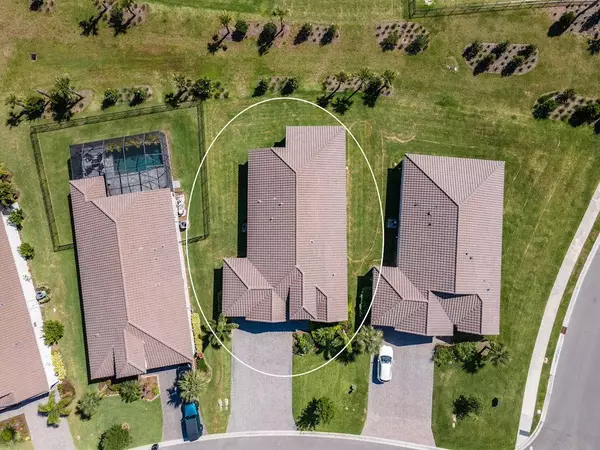
![The Wealth-Building Power of Homeownership [INFOGRAPHIC]](https://img.chime.me/image/fs/chimeblog/20240608/16/w600_original_2cdc0a73-b6e5-40cb-9980-bd164023d6dc-png.webp)

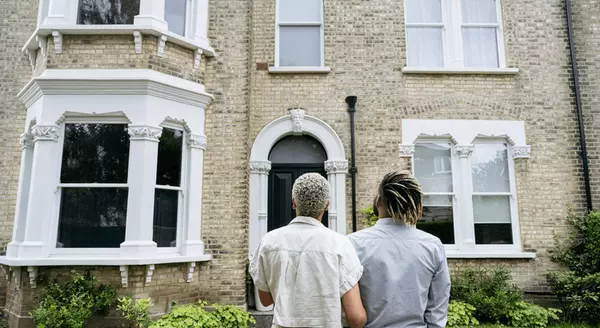
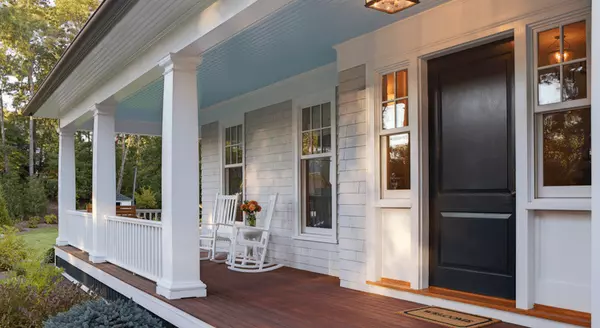

![Top Reasons To Own a Home [INFOGRAPHIC]](https://img.chime.me/image/fs/chimeblog/20240601/16/w600_original_b1f8d4ba-4426-4212-8359-03db8a9468cf-jpg.webp)
